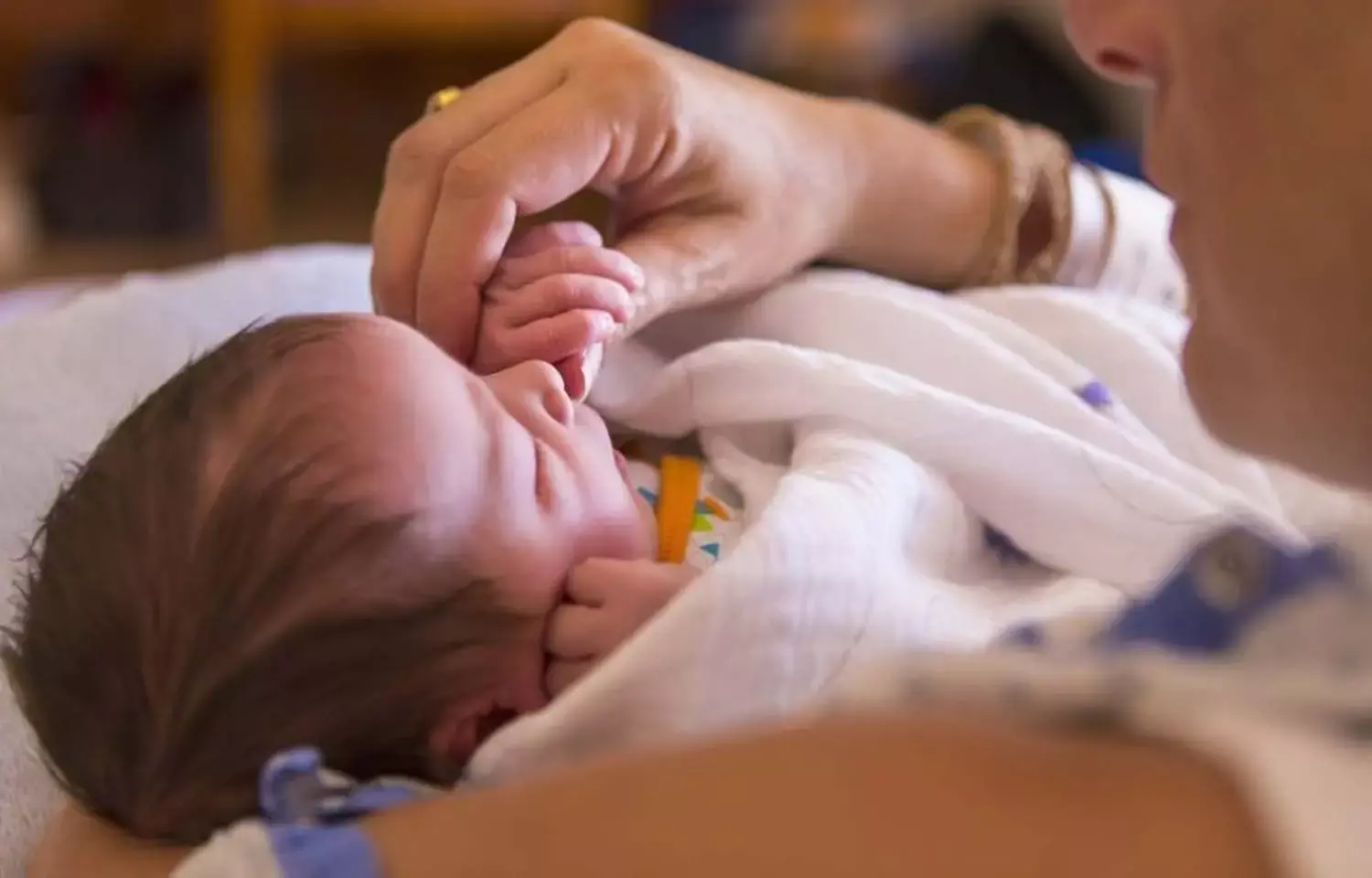- Home
- Medical news & Guidelines
- Anesthesiology
- Cardiology and CTVS
- Critical Care
- Dentistry
- Dermatology
- Diabetes and Endocrinology
- ENT
- Gastroenterology
- Medicine
- Nephrology
- Neurology
- Obstretics-Gynaecology
- Oncology
- Ophthalmology
- Orthopaedics
- Pediatrics-Neonatology
- Psychiatry
- Pulmonology
- Radiology
- Surgery
- Urology
- Laboratory Medicine
- Diet
- Nursing
- Paramedical
- Physiotherapy
- Health news
- Fact Check
- Bone Health Fact Check
- Brain Health Fact Check
- Cancer Related Fact Check
- Child Care Fact Check
- Dental and oral health fact check
- Diabetes and metabolic health fact check
- Diet and Nutrition Fact Check
- Eye and ENT Care Fact Check
- Fitness fact check
- Gut health fact check
- Heart health fact check
- Kidney health fact check
- Medical education fact check
- Men's health fact check
- Respiratory fact check
- Skin and hair care fact check
- Vaccine and Immunization fact check
- Women's health fact check
- AYUSH
- State News
- Andaman and Nicobar Islands
- Andhra Pradesh
- Arunachal Pradesh
- Assam
- Bihar
- Chandigarh
- Chattisgarh
- Dadra and Nagar Haveli
- Daman and Diu
- Delhi
- Goa
- Gujarat
- Haryana
- Himachal Pradesh
- Jammu & Kashmir
- Jharkhand
- Karnataka
- Kerala
- Ladakh
- Lakshadweep
- Madhya Pradesh
- Maharashtra
- Manipur
- Meghalaya
- Mizoram
- Nagaland
- Odisha
- Puducherry
- Punjab
- Rajasthan
- Sikkim
- Tamil Nadu
- Telangana
- Tripura
- Uttar Pradesh
- Uttrakhand
- West Bengal
- Medical Education
- Industry
Vitamin D deficiency at birth tied to acute respiratory infections later: Study

New Zealand: Babies having vitamin D deficiency at birth are at increased risk of hospitalization from acute respiratory infections (ARIs) during their infancy, finds a recent study in the journal Paediatric and Perinatal Epidemiology.
The findings are relevant for countries where vitamin D supplementation is not routinely recommended and the burden of ARI hospitalization in young children is high.
Hospital admission for ARIs during during early childhood is a public health concern worldwide. There is an increased prevalence of vitamin D deficiency during infancy and pregnancy. Some studies have shown the role of vitamin D supplementation for ARIs prevention. Cameron C. Grant, The University of Auckland, Auckland, New Zealand, and colleagues aimed to determine whether vitamin D deficiency at birth is associated with ARI hospitalisations during infancy.
For the purpose, the researchers performed a nested case–control study in children aged 0‐12 months. Six per cent of the cohort (n = 384) had an ARI hospitalisation during infancy, and 1536 controls were matched to cases.
Cases had ≥1 ARI hospitalisation and 4 controls were individually matched to each case. The concentrations of 25(OH)D was measured on dried blood spots using two‐dimensional liquid chromatography–tandem mass spectrometry.
Hospital admissions were measured using health care records. Median serum 25(OH)D concentration in cases and controls was compared, and covariates of ARI hospitalisation during infancy were assessed using conditional logistic regression analysis.
Key findings of the study include:
- Median DBS [25(OH)D] was lower among ARI cases than controls (46 nmol/l vs. 61 nmol/L).
- Median 25(OH)D levels were lower for those hospitalised ≥2 times (47, IQR 36, 58) vs. those hospitalised once (52, IQR 42, 62) vs. the controls and also lower for those who stayed in the hospital for ≥3 days (45, IQR 36, 54) vs 1‐2 days (48, IQR 38, 59) compared to the controls.
- After adjustment for season of birth and covariates describing demographic, antenatal, perinatal, and infant characteristics, DBS 25(OH)D concentration (<50 nmol/L) at birth was associated with increased odds of ARI hospitalisation during infancy (odds ratio 2.20).
"Vitamin D deficiency at birth is associated with increased odds of ARI hospitalisations in infants," wrote the authors. "The findings have implications for a developed country like New Zealand where vitamin D supplementation is not routinely recommended and the burden of ARI hospitalisation in young children is high."
Reference:
The study titled, "Vitamin D status at birth and acute respiratory infection hospitalisation during infancy," is published in the journal Paediatric and Perinatal Epidemiology.
Dr Kamal Kant Kohli-MBBS, DTCD- a chest specialist with more than 30 years of practice and a flair for writing clinical articles, Dr Kamal Kant Kohli joined Medical Dialogues as a Chief Editor of Medical News. Besides writing articles, as an editor, he proofreads and verifies all the medical content published on Medical Dialogues including those coming from journals, studies,medical conferences,guidelines etc. Email: drkohli@medicaldialogues.in. Contact no. 011-43720751


